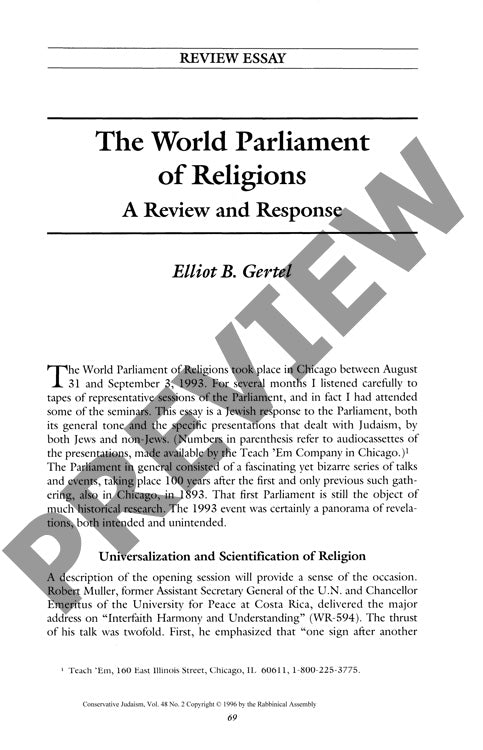The World Parliament of Religions a Revi
Couldn't load pickup availability
When religious leaders gathered for the 1993 World Parliament of Religions in Chicago, they encountered a troubling paradox: while promoting interfaith dialogue, the Parliament inadvertently advanced ideologies that threatened authentic religious expression. Through ethnographic observation of seminars and analysis of session recordings, two concerning patterns emerged: the reduction of spirituality to scientifically measurable phenomena, and the promotion of syncretistic "New Age" philosophies carrying anti-Semitic undertones, particularly through the influence of Alice Bailey's teachings. The Parliament's handling of environmental and interfaith issues frequently subordinated traditional religious frameworks to secular scientific paradigms. Jewish participants demonstrated varying responses - scholars like Emil Fackenheim and Irving Greenberg mounted robust defenses of traditional Jewish theology, while others made problematic concessions to the Parliament's universalistic themes. Non-Jewish speakers' treatment of Judaism ranged from thoughtful engagement to perpetuation of stereotypes. While interfaith dialogue remains valuable, the Parliament's approach revealed the dangers of dissolving distinctive religious traditions into generic spirituality. Meaningful interreligious engagement requires maintaining theological integrity rather than reducing faith traditions to utilitarian tools for secular objectives. This analysis, based on direct observation and recorded proceedings, demonstrates the critical importance of preserving authentic religious discourse in interfaith settings.

More Information
-
Physical Description
-
Publication Information
Published 1996
ISBN
-
Publication Credits
Elliot Gertel

